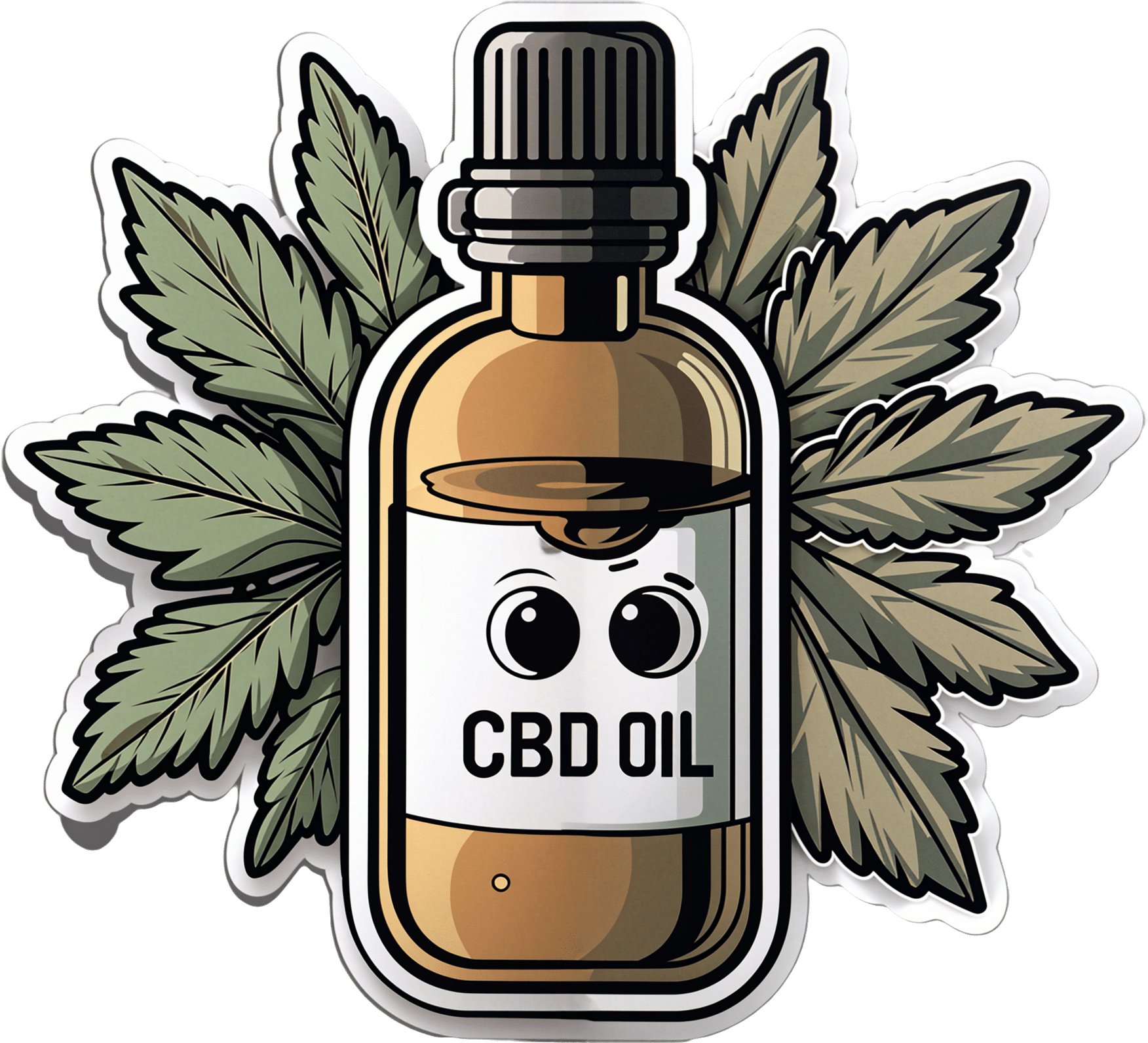
Beyond Guarding Against Dementia
10almonds is reader-supported. We may, at no cost to you, receive a portion of sales if you purchase a product through a link in this article.
When Age’s Brain-Changes Come Knocking

This is Dr. Amy Friday. She’s a psychologist, specializing in geropsychology and neuropsychological assessments.
In other words, she helps people optimize their aging experience, particularly in the context of brain changes as we get older.
What does she want us to know?
First: be not afraid
Ominous first words, but the fact is, there’s a lot to find scary about the prospect of memory loss, dementia, and death.
However, as she points out:
- Death will come for us all sooner or later, barring technology as yet unknown
- Dementia can be avoided, or at least stalled, or at least worked around
- Memory loss, as per the above, can be avoided/stalled/managed
We’ve written a little on these topics too:
…or if the death is not yours:
As for avoiding dementia, the below-linked feature is about Alzheimer’s in particular (which accounts for more than half of all cases of dementia), but the advice goes for most of the other kinds too:
How To Reduce Your Alzheimer’s Risk
And finally, about memory loss specifically:
How To Boost Your Memory Immediately (Without Supplements)
this one is especially about cementing into one’s brain the kinds of memories that people most fear losing with age. People don’t worry about forgetting their PIN codes; they worry about forgetting their cherished memories with loved ones. So, if that’s important to you, do consider checking out this one!
What is that about managing or working around the symptoms?
If we’re missing a limb, we (usually) get a prosthetic, and/or learn how to operate without that limb.
If we’re missing sight or hearing, partially or fully, there are disability aids for those kinds of things too (glasses are a disability aid! Something being very common does not make it not a disability; you literally have less of an ability—in this case, the ability to see), and/or we learn how to operate with our different (or missing) sense.
Dr. Friday makes the case for this being the same with memory loss, dementia, and other age-related symptoms (reduced focus, increased mental fatigue, etc):
❝We are all screwed up. Here’s my flavor … what’s yours? This is a favorite saying of mine, because we ARE all screwed up in one way or another, and when we acknowledge it we can feel closer in our screwed-up-edness.
We are all experiencing “normal aging,” so that tip-of-the-tongue phenomenon that starts in our thirties and slowly gets worse is REAL. But what if you’re having more problems than normal aging? Is it time to throw in the towel and hide? I’m hoping that there is a group of people who say HELL NO to that idea.
Let’s use lessons from research and clinical practice to help all of us work around our weaknesses, and capitalize on our strengths. ❞
Examples of this might include:
- Writing down the things most important to you (a short list of information and/or statements that you feel define you and what matters most to you), so that you can read it later
- Making sure you have support (partner, family, friends, etc) who are on the same page about this topic—and thus will actually support you and advocate for you, instead of arguing about what is in your best interest without consulting you.
- Labelling stuff around the house, so that you get less confused about what is what and where it is
- Having a named go-to advocate that you can call / ask to be called, if you are in trouble somewhere and need help that you can rely on
- Getting a specialized, simpler bank account; hiring an accountant if relevant and practicable.
The thing is, we all want to keep control. Sometimes we can do that! Sometimes we can’t, and if we’re going to lose some aspect of control, it’ll generally go a lot better if we do it on our own terms, so that we ourselves can look out for future-us in our planning.
Want to know more?
You might enjoy her blog, which includes also links to her many videos on the topic, including such items as:
- Neuroplasticity – #1 Way To Increase Brain Health
- Which Diet PREVENTS Alzheimer’s? | Best Brain Health Diet
- Stop Anxiety About Dementia & Do I Have Dementia?
For the rest, see:
This Beautiful Brain | The Science Of Brain Health
Enjoy!
Don’t Forget…
Did you arrive here from our newsletter? Don’t forget to return to the email to continue learning!
Recommended
Learn to Age Gracefully
Join the 98k+ American women taking control of their health & aging with our 100% free (and fun!) daily emails:
-
Reishi Mushrooms: Which Benefits Do They Really Have?
10almonds is reader-supported. We may, at no cost to you, receive a portion of sales if you purchase a product through a link in this article.
Reishi Mushrooms
Another Monday Research Review, another mushroom! If we keep this up, we’ll have to rename it “Mushroom Monday”.
But, there’s so much room for things to say, and these are fun guys to write about, as we check the science for any spore’ious claims…
Why do people take reishi?
Popular health claims for the reishi mushroom include:
- Immune health
- Cardiovascular health
- Protection against cancer
- Antioxidant qualities
- Reduced fatigue and anxiety
And does the science agree?
Let’s take a look, claim by claim:
Immune health
A lot of research for this has been in vitro (ie, with cell cultures in labs), but promising, for example:
Immunomodulating Effect of Ganoderma lucidum (Lingzhi) and Possible Mechanism
(that is the botanical name for reishi, and the Chinese name for it, by the way)
That’s not to say there are no human studies though; here it was found to boost T-cell production in stressed athletes:
Cardiovascular health
Here we found a stack of evidence for statistically insignificant improvements in assorted measures of cardiovascular health, and some studies where reishi did not outperform placebo.
Because the studies were really not that compelling, instead of taking up room (and your time) with them, we’re going to move onto more compelling, exciting science, such as…
Protection against cancer
There’s a lot of high quality research for this, and a lot of good results. The body of evidence here is so large that even back as far as 2005, the question was no longer “does it work” or even “how does it work”, but rather “we need more clinical studies to find the best doses”. Researchers even added:
❝At present, lingzhi is a health food supplement to support cancer patients, yet the evidence supporting the potential of direct in vivo anticancer effects should not be underestimated.❞
Check it out:
Anticancer effects of Ganoderma lucidum: a review of scientific evidence
Just so you know we’re not kidding about the weight of evidence, let’s drop a few extra sources:
- Ganoderma lucidum: a rational pharmacological approach to surmount cancer
- Ganoderma lucidum as an anti-cancer agent
- Extract from Ganoderma lucidum suppresses cervical cancer cell malignancy
- Ganoderma lucidum spore oil induces apoptosis of breast cancer cells
- Ganoderma lucidum enhances carboplatin chemotherapy effect
- Ganoderma lucidum inhibits prostate cancer cell migration
- Ganoderma lucidum fruiting body extracts inhibit colorectal cancer
- Inhibitory activity of medicinal mushroom Ganoderma lucidum on colorectal cancer
- Ganoderma lucidum (reishi mushroom) for cancer treatment
By the way, we shortened most of those titles for brevity, but almost all of the continued with “by” followed by a one-liner of how it does it.
So it’s not a “mysterious action” thing, it’s a “this is a very potent medicine and we know how it works” thing.
Antioxidant qualities
Here we literally only found studies to say no change was found, one that found a slight increase of antioxidant levels in urine. It’s worth noting that levels of a given thing (or its metabolites, in the case of some things) in urine are often quite unhelpful regards knowing what’s going on in the body, because we get to measure only what the body lost, not what it gained/kept.
So again, let’s press on:
Reduced fatigue and anxiety
Most of the studies for this that we could find pertained to health-related quality of life for cancer patients specifically, so (while they universally give glowing reports of reishi’s benefits to health and happiness of cancer patients), that’s a confounding factor when it comes to isolating its effects on reduction of fatigue and anxiety in people without cancer.
Here’s one that looked at it in the case of reduction of fatigue, anxiety, and other factors, in patients without cancer (but with neurathenia), in which they found it was “significantly superior to placebo with respect to the clinical improvement of symptoms”.
Summary:
- Reishi mushroom’s anti-cancer properties are very, very clear
- There is also good science to back immune health claims
- It also has been found to significantly reduce fatigue and anxiety in unwell patients (we’d love to see more studies on its benefits in otherwise healthy people, though)
Share This Post
-
Healthy Chocolate Fudge Energy Bites
10almonds is reader-supported. We may, at no cost to you, receive a portion of sales if you purchase a product through a link in this article.
While these are quite high-calorie, they’re also high in protein, and the fiber and healthy fats flatten the blood sugar curve:
You will need
- 1 cup peanut butter
- 4 oz dark chocolate, melted (try to get dark chocolate with >80% cocoa, if you can; 85% is very respectable and 90% is perfect)
- ⅓ cup maple syrup (you can safely reduce this, or even omit it, if you prefer less sweetness)
- ¼ cup hazelnuts
- ¼ cup almond milk (or your preferred milk, but we recommend almond for taste and health)
- 1 tsp vanilla extract
- Topping: ¼ cup hazelnuts, roughly chopped
Method
(we suggest you read everything at least once before doing anything)
1) Combine all the ingredients (except the topping) in a food processor, and blend until smooth.
2) Line a container (5″x7″ is a good size) with baking paper and spread the mixture evenly into it, pressing down gently.
3) Sprinkle the topping onto it, press that even more gently into it.
4) Refrigerate overnight (or chill it for 2hrs in the freezer).
5) Cut into cubes to serve; they can be served frozen or thawed, per your preference:
Enjoy!
Want to learn more?
For those interested in some of the science of what we have going on today:
- Eating For Energy (In Ways That Actually Work)
- “Let Them Eat Cake”, She Said…
- Why You Should Diversify Your Nuts!
- Plant-Based Milks—What’s Best?
- Chocolate & Health: Fact or Fiction?
Take care!
Share This Post
-
Q&A with the 10almonds Team
Q: Very interested in this article on CBD oil in the states. hope you do another one in the future with more studies done on people and more information on what’s new as far as CBD oil goes
A: We’re glad you enjoyed it! We’ll be sure to revisit CBD in the future—partly because it was a very popular article, and partly because, as noted, there is a lot going on there, research-wise!
And yes, we prefer human studies rather than mouse/rat studies where possible, too, and try to include those where we find them. In some cases, non-human animal studies allow us to know things that we can’t know from human studies… because a research institution’s ethics board will greenlight things for mice that it’d never* greenlight for humans.
Especially: things that for non-human animals are considered “introduction of external stressors” while the same things done to humans would be unequivocally called “torture”.
Animal testing in general is of course a moral quagmire, precisely because of the suffering it causes for animals, while the research results (hopefully) can be brought to bear to reduce to suffering of humans. We’re a health and productivity newsletter, not a philosophical publication, but all this to say: we’re mindful of such too.
And yes, we agree, when studies are available on humans, they’re always going to be better than the same study done on mice and rats.
As a topical aside, did you know there’s a monument to laboratory mice and all they’ve (however unintentionally) done for us?
❝The quirky statue depicts an anthropomorphic mouse as an elderly woman, complete with glasses balanced atop its nose. Emerging from two knitting needles in its hands is the recognizable double-helix of a strand of DNA.❞
~ Smithsonian Magazine
Share This Post
Related Posts
-
Intermittent Fasting, Intermittently?
10almonds is reader-supported. We may, at no cost to you, receive a portion of sales if you purchase a product through a link in this article.
It’s Q&A Day at 10almonds!
Have a question or a request? We love to hear from you!
In cases where we’ve already covered something, we might link to what we wrote before, but will always be happy to revisit any of our topics again in the future too—there’s always more to say!
As ever: if the question/request can be answered briefly, we’ll do it here in our Q&A Thursday edition. If not, we’ll make a main feature of it shortly afterwards!
So, no question/request too big or small 😎
❝Have you come across any research on alternate-day intermittent fasting—specifically switching between one day of 16:8 fasting and the next day of regular eating patterns? I’m curious if there are any benefits or drawbacks to this alternating approach, or if the benefits mainly come from consistent intermittent fasting?❞
Short and unhelpful answer: no
Longer and hopefully more helpful answer:
As you probably know, usually people going for approaches based on the above terms either
- practise 16:8 fasting (fast for 16 hours each day, eat during an 8-hour window) or
- practise alternate-day fasting (fast for 24 hours, eat whenever for 24 hours, repeat)
…which latter scored the best results in this large meta-analysis of studies:
There is also the (popular) less extreme version of alternate-day fasting, sometimes called “eat stop eat”, which is not a very helpful description because that describes almost any kind of eating/fasting, but it usually refers to “once per week, take a day off from eating”.
You can read more about each of these (and some other variants), here:
Intermittent Fasting: What’s The Truth?
What you are describing (doing 16:8 fasting on alternate days, eating whenever on the other days) is essentially: intermittent fasting, just with one 16-hour fast per 48 hours instead of per the usual 24 hours.
See also: International consensus on fasting terminology ← the section on the terms “STF & PF” covers why this gets nudged back under the regular IF umbrella
Good news: this means there is a lot of literature into the acute (i.e., occurring the same day, not long-term)* benefits of 16:8 IF, and that means that you will be getting those benefits, every second day.
You remember that meta-analysis we posted above? While it isn’t mentioned in the conclusion (which only praised complete alternate-day fasting producing the best outcomes overall), sifting through the results data discovers that time-restricted eating (which is what you are doing, by these classifications) was the only fasting method to significantly reduce fasting blood glucose levels.
(However, no significant differences were observed between any IF form and the reference (continuous energy restriction, CER, i.e. calorie-controlled) diets in fasting insulin and HbA1c levels)
*This is still good news in the long-term though, because getting those benefits every second day is better than getting those benefits on no days, and this will have a long-term impact on your healthy longevity, just like how it is better to exercise every second day than it is to exercise no days, or better to abstain from alcohol every second day than it is to abstain on no days, etc.
In short, by doing IF every second day, you are still giving your organs a break sometimes, and that’s good.
All the same, if it would be convenient and practical for you, we would encourage you to consider either the complete alternate-day fasting (which, according to a lot of data, gives the best results overall),or time-restricted eating (TRE) every day (which, according to a lot of data, gives the best fasting blood sugar levels).
You could also improve the TRE days by shifting to 20:4 (i.e., 20 hours fasting and 4 hours eating), this giving your organs a longer break on those days.
Want to learn more?
For a much more comprehensive discussion of the strengths and weaknesses of different approaches to intermitted fasting, check out:
Enjoy!
Don’t Forget…
Did you arrive here from our newsletter? Don’t forget to return to the email to continue learning!
Learn to Age Gracefully
Join the 98k+ American women taking control of their health & aging with our 100% free (and fun!) daily emails:
-
Human, Bird, or Dog Waste? Scientists Parsing Poop To Aid DC’s Forgotten River
10almonds is reader-supported. We may, at no cost to you, receive a portion of sales if you purchase a product through a link in this article.
KFF Health News Peggy Girshman reporting fellow Jackie Fortiér joined a boat tour to spotlight a review of microbes in the Anacostia River, a step toward making the river healthier and swimmable. The story was featured on WAMU’s “Health Hub” on Feb. 26.
On a bright October day, high schoolers from Francis L. Cardozo Education Campus piled into a boat on the Anacostia River in Washington, D.C. Most had never been on the water before.
Their guide, Trey Sherard of the Anacostia Riverkeeper, started the tour with a well-rehearsed safety talk. The nonprofit advocates for the protection of the river.
A boy with tousled black hair casually dipped his fingers in the water.
“Don’t touch it!” Sherard yelled.
Why was Sherard being so stern? Was it dangerously cold? Were there biting fish?
Because of the sewage.
“We get less sewage than we used to. Sewage is a code word for what?” Sherard asked the teenagers.
“Poop!” one student piped up.
“Human poop,” Sherard said. “Notice I didn’t say we get none. I said we get what? Less.”
Tours like this are designed to get young people interested in the river’s ecology, but it’s a fine line to tread — interacting with the water can make people sick. Because of the health risks, swimming hasn’t been legal in the Anacostia for more than half a century. The polluted water can cause gastrointestinal and respiratory illnesses, as well as eye, nose, and skin infections.
The river is the cleanest it’s been in years, according to environmental experts, but they still advise you not to take a dip in the Anacostia — not yet, at least.
About 40 million people in the U.S. live in a community with a combined sewer system, where wastewater and stormwater flow through the same pipes. When pipe capacities are reached after heavy rains, the overflow sends raw wastewater into the rivers instead of to a treatment plant.
Federal regulations, including sections of the Clean Water Act, require municipalities such as Washington to reduce at least 85% of this pollution or face steep fines.
To achieve compliance, Washington launched a $2.6 billion infrastructure project in 2011. DC Water’s Clean Rivers Project will eventually build multiple miles-long underground storage basins to capture stormwater and wastewater and pump it to treatment plants once heavy rains have subsided.
The Anacostia tunnel is the first of these storage basins to be completed. It can collect 190 million gallons of bacteria-laden wastewater for later treatment, said Moussa Wone, vice president of the Clean Rivers Project.
Climate change is causing more intense rainstorms in Washington, so even after construction is complete in 2030, Wone said, untreated stormwater will be discharged into the river, though much less frequently.
“On the Anacostia, we’re going to be reducing the frequency of overflows from 82 to two in an average year,” Wone said.
But while the Anacostia sewershed covers 176 square miles, he noted, only 17% is in Washington.
“The other 83% is outside the district,” Wone said. “We can do our part, but everybody else has to do their part also.”
Upstream in Maryland’s Montgomery and Prince George’s counties, miles of sewer lines are in the process of being upgraded to divert raw sewage to a treatment plant instead of the river.
The data shows that poop is a problem for river health — but knowing what kind of poop it is matters. Scientists monitor E. coli to indicate the presence of feces in river water, but since the bacteria live in the guts of most warm-blooded animals, the source is difficult to determine.
“Is it human feces? Or is it deer? Is it gulls’? Is it dogs’?” said Amy Sapkota, a professor of environmental and occupational health at the University of Maryland.
Bacterial levels can fluctuate across the river even without rainstorms. An Anacostia Riverkeeper report found that in 2023 just three of nine sites sampled along the Washington portion of the watershed had consistently low E. coli levels throughout the summer season.
Sapkota is heading a new bacterial monitoring program measuring the amount of E. coli that different animal species deposit along the river.
The team uses microbial source tracking to analyze samples of river water taken from different locations each month by volunteers. The molecular approach enables scientists to target specific gene sequences associated with fecal bacteria and determine whether the bacteria come from humans or wildlife. Microbial source tracking also measures fecal pollution levels by source.
“We can quantify the levels of different bacterial targets that may be coming from a human fecal source or an animal fecal source,” Sapkota said.
Her team expects to have preliminary results this year.
The health risk to humans from river water will never be zero, Sapkota said, but based on her team’s research, smart city planning and retooled infrastructure could lessen the level of harmful bacteria in the water.
“Let’s say that we’re finding that actually there’s a lot of deer fecal signatures in our results,” Sapkota said. “Maybe this points to the fact that we need more green buffers along the river that can help prevent fecal contaminants from wildlife from entering the river during stormwater events.”
Washington is hoping to recoup some of the cost of building green spaces and other river cleanup. In January, the office of D.C. Attorney General Brian Schwalb filed a lawsuit seeking unspecified damages from the federal government over decades of alleged pollution of the Anacostia River.
Brenda Lee Richardson, coordinator of the Anacostia Parks & Community Collaborative, said the efforts to cut down on trash and sewage are paying off. She sees a river on the mend, with more plant and animal life sprouting up.
“The ecosystem seems a lot greener,” she said. “There’s stuff in the river now that wasn’t there before.”
But any changes to the waterfront need to be done with residents of both sides of the river in mind, she said.
“We want there to be some sense of equity as it relates to who has access,” she said. “When I look at who is recreating, it’s not people who look like me.”
Richardson has lived for 40 years in Ward 8 — a predominantly Black area on the east side of the river whose residents are generally less affluent than those on the west side. She and her neighbors don’t consider the Anacostia a place to get out and play, she said.
As the water quality slowly improves, Richardson said, she hopes the Anacostia’s reputation is also rehabilitated. Even if it’s not safe to swim in, Richardson enjoys boating trips like the one with the Anacostia Riverkeeper.
“To see all those creatures along the way and the greenery. It was comforting,” she said. “So rather than take a pill to settle my nerves, I can just go down the river.”
KFF Health News is a national newsroom that produces in-depth journalism about health issues and is one of the core operating programs at KFF—an independent source of health policy research, polling, and journalism. Learn more about KFF.
Subscribe to KFF Health News’ free Morning Briefing.
This article first appeared on KFF Health News and is republished here under a Creative Commons license.
Don’t Forget…
Did you arrive here from our newsletter? Don’t forget to return to the email to continue learning!
Learn to Age Gracefully
Join the 98k+ American women taking control of their health & aging with our 100% free (and fun!) daily emails:
-
Goji Berries vs Blueberries – Which is Healthier?
10almonds is reader-supported. We may, at no cost to you, receive a portion of sales if you purchase a product through a link in this article.
Our Verdict
When comparing goji berries to blueberries, we picked the goji berries.
Why?
As you might have guessed, both are very good options:
- Both have plenty of vitamins and minerals, and/but goji berries have more. How much more? It varies, but for example about 5x more vitamin C, about 25x more iron, about 30x more calcium, about 50x more vitamin A.
- Blueberries beat goji berries with some vitamins (B, E, K), but only in quite small amounts.
- Both are great sources of antioxidants, and/but goji berries have 2–4 times the antioxidants that blueberries do.
- Goji berries do have more sugar, but since they have about 4x more sugar and 5x more fiber, we’re still calling this a win for goji berries on the glycemic index front (and indeed, the GI of goji berries is lower).
In short: blueberries are great, but goji berries beat them in most metrics.
Want to read more?
Check out our previous main features, detailing some of the science, and also where to get them:
Enjoy!
Don’t Forget…
Did you arrive here from our newsletter? Don’t forget to return to the email to continue learning!
Learn to Age Gracefully
Join the 98k+ American women taking control of their health & aging with our 100% free (and fun!) daily emails:








